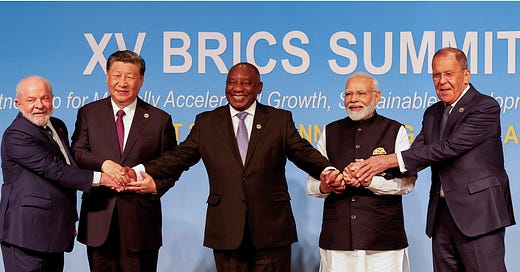The West versus the 'Rest' over Ukraine
Putin has lots of 'friends', and that's a problem. But the West has more unity
History of the Present (fortnight ending 9 September 2023)
The West versus the 'Rest' over Ukraine
So last week's G20 meeting in India couldn't even agree to speak in their concluding communiqué of 'Russian aggression' against Ukraine, as they did last year. This despite eighteen months of, precisely, Russian aggression against Ukraine. Instead…
Keep reading with a 7-day free trial
Subscribe to History of the Present to keep reading this post and get 7 days of free access to the full post archives.




